Press
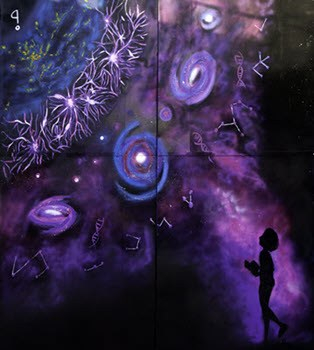
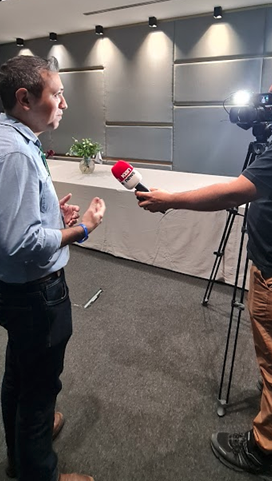
Science Grafiti detail: “The Mystery”.

Clécio de Bom was selected for the TWAS-AAAS 2025 Science Diplomacy course
The latest edition of the Science Diplomacy course of the World Academy of Sciences (TWAS)
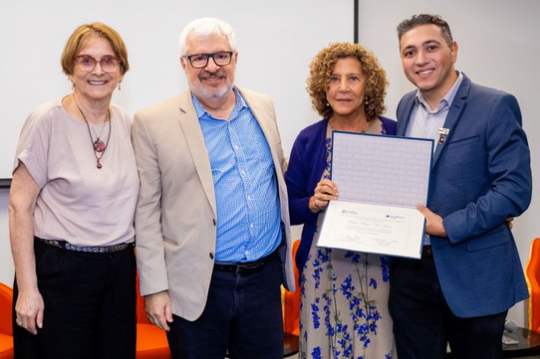
AI Lab / CBPF stands out in Artificial Intelligence with Jacob Palis Award
On Friday (19), the Brazilian Academy of Sciences and the Fulbright Commission announced the winners of the Jacob Palis Prize. Among them is Clécio De Bom, a physicist at the CBPF and coordinator of the Laboratory of Artificial Intelligence Applied to Physics.
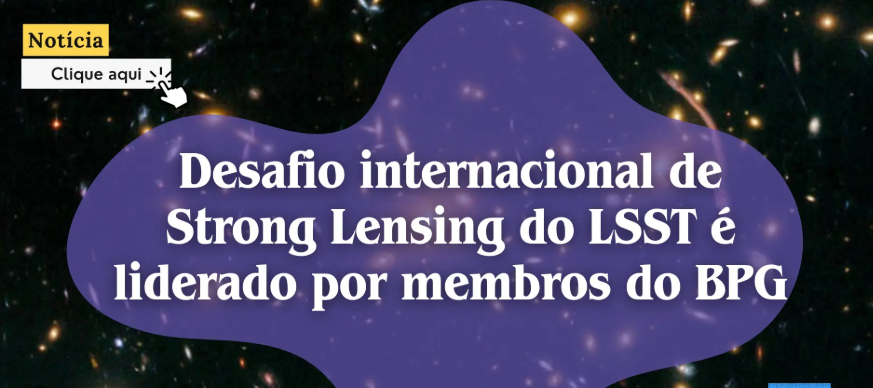
LSST International Strong Lensing Challenge led by BPG members
The Vera Rubin Strong Lensing Challenge (SLChallenge) is an international data challenge aimed at identifying and characterizing strong gravitational lensing systems, phenomena that occur when light from a distant galaxy is bent by the presence of another foreground mass.
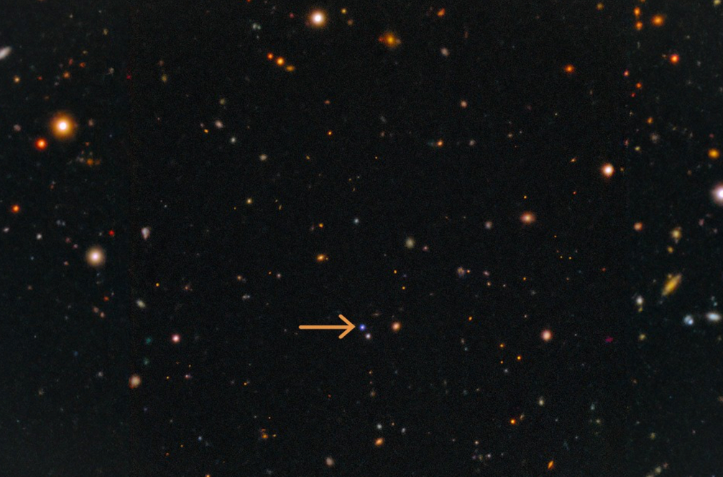
Brazilian researchers participate in study explaining phenomenon behind star explosion
When very massive stars reach the end of their lives, they collapse and give rise to a phenomenon known as a supernova. The supernova process is complex and involves different phases such as the ejection of outer layers and the collapse of inner layers.
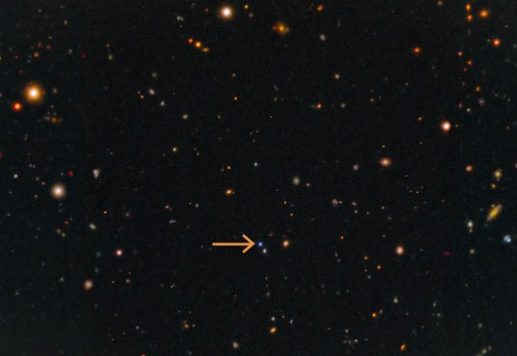
“Failed” stellar explosion helps explain rare cosmic phenomenon
Joint effort between the Gemini International Observatory and the Southern Astrophysical Research Telescope (SOAR) in Chile expands understanding of the deaths of very massive stars.
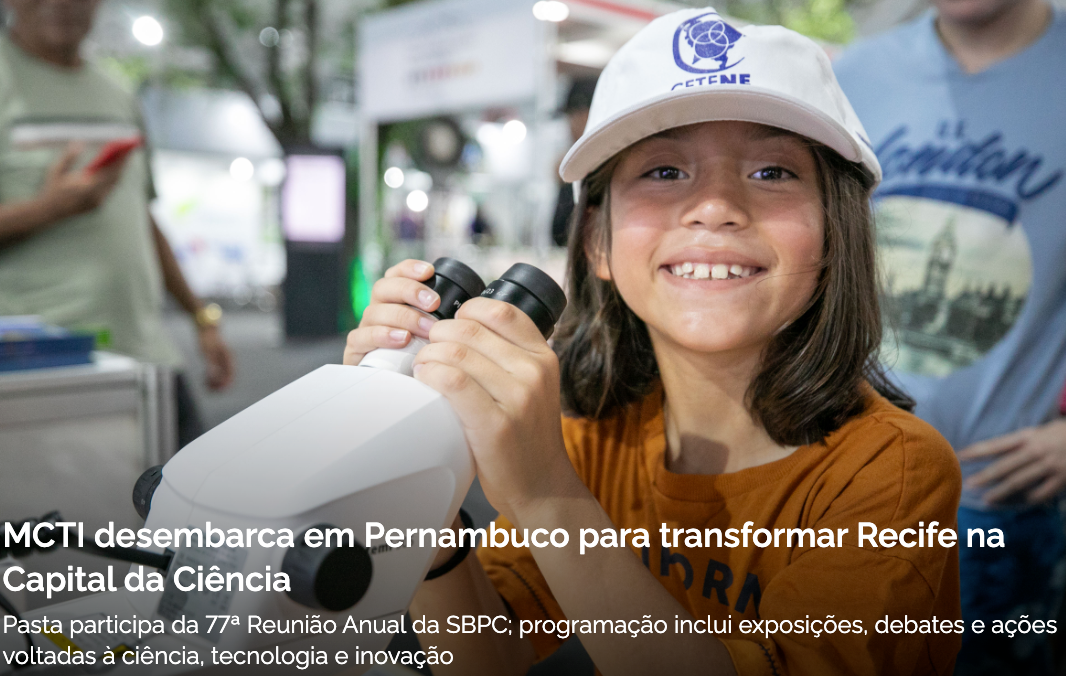
Science Ministry reports launch of AI supercomputer at CBPF
From July 13 to 19, Recife—already a vibrant, diverse, and multicultural city—also becomes the Capital of Brazilian Science.
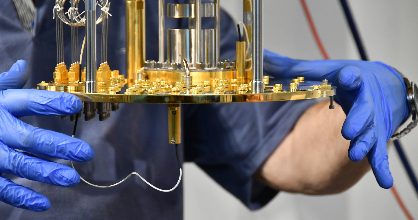
Research center opens AI and quantum technology labs in Rio
Facilities will be used to manufacture chips and develop studies in astrophysics and cosmology.
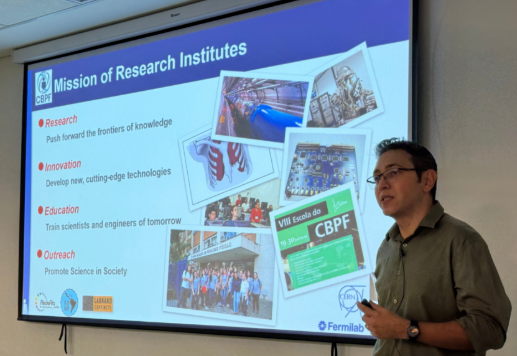
CBPF researcher brings AI applications to physics at IMPA Tech
Titled “From Fundamental Research to Industry: AI Applied in Physics and Geophysics,” the presentation covered advanced classifiers, Generative Techniques, and Artificial Intelligence Agents to automate and improve scientific processes.
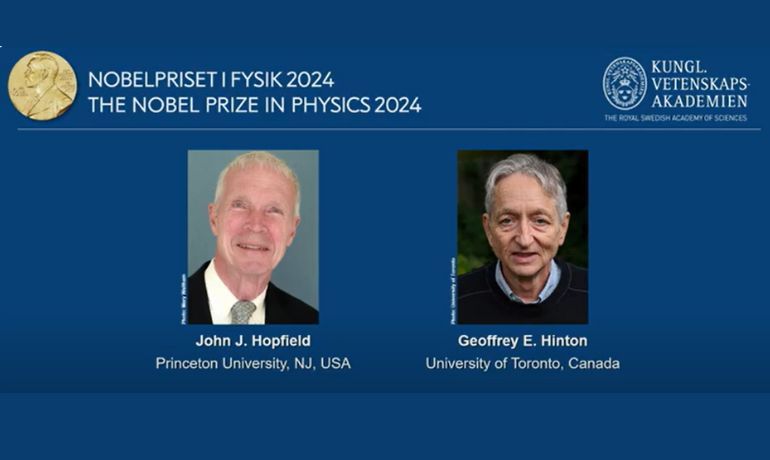
2024 Nobel Prize in Physics: discoveries and inventions that contribute to AI training
On October 8, the Royal Swedish Academy of Sciences decided to award the 2024 Nobel Prize in Physics to John J. Hopfield (Princeton University, NJ, USA) and Geoffrey E. Hinton (University of Toronto, Canada).
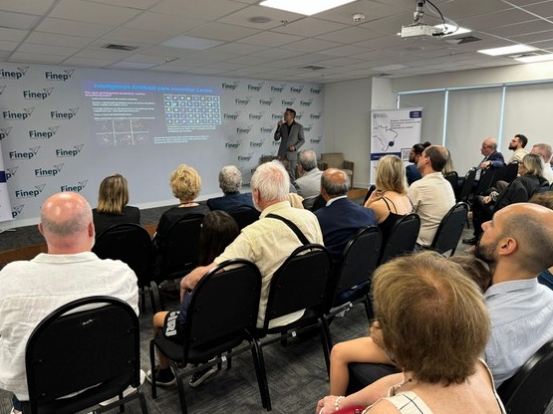
CBPF professor takes office as affiliated member of the Brazilian Academy of Sciences
Professor Clécio Roque de Bom, from the Brazilian Center for Physics Research (CBPF), was sworn in as an affiliated member of the Brazilian Academy of Sciences (ABC) yesterday (09/19).
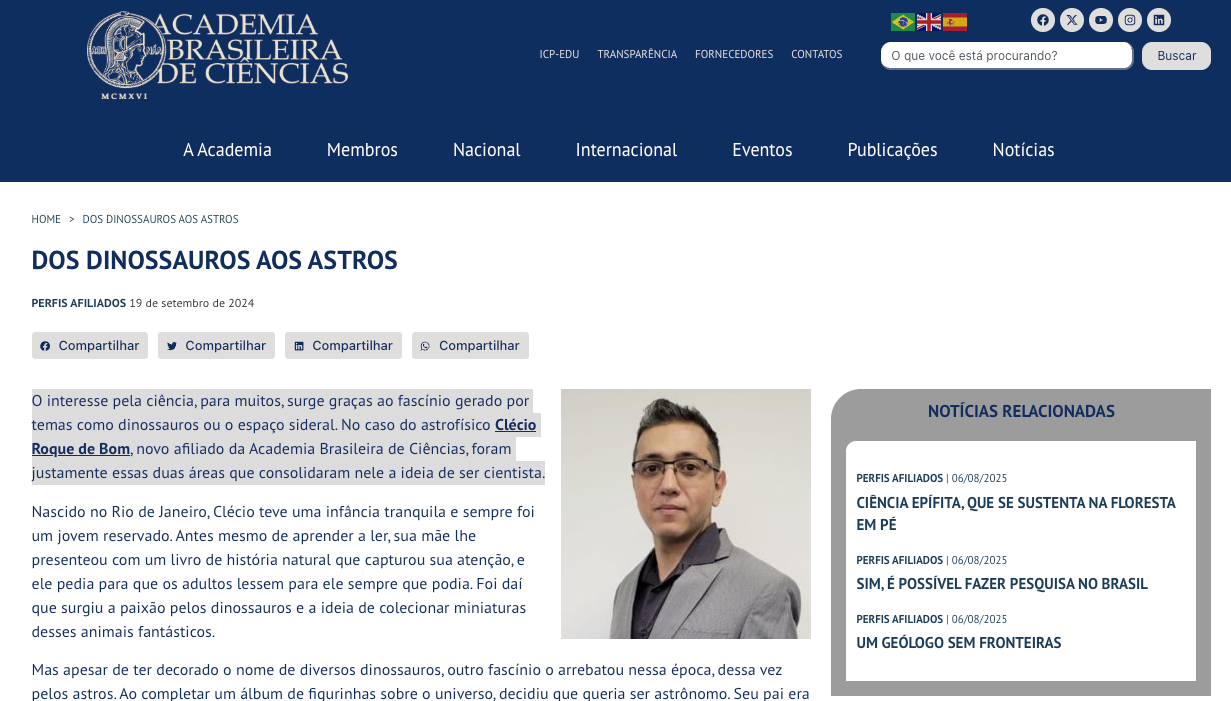
From dinosaurs to the stars
For many, an interest in science arises from the fascination with themes such as dinosaurs or outer space. For astrophysicist Clécio Roque de Bom, a new affiliate of the Brazilian Academy of Sciences, these two areas were precisely what solidified his desire to become a scientist.
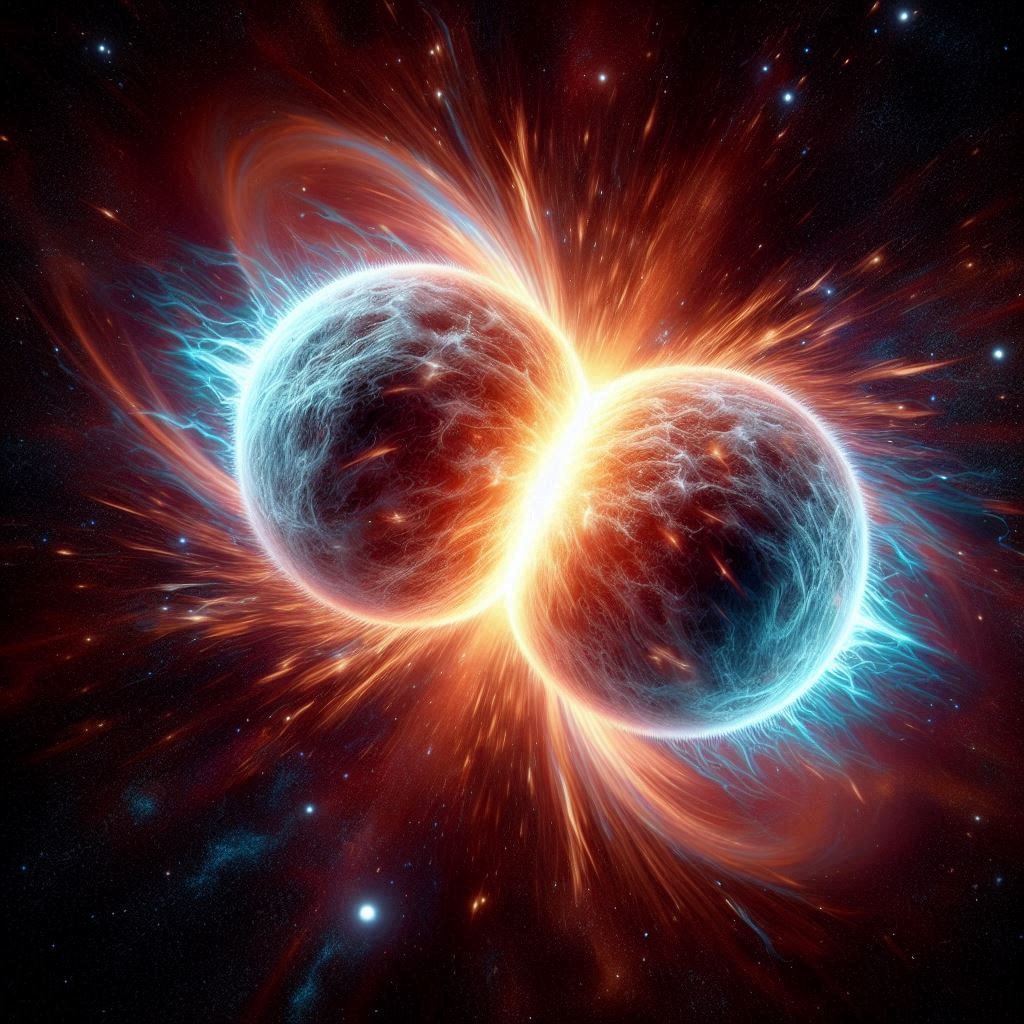
The Brazilians who helped “guide the eyes” of Hubble and James Webb
Scientists from CBPF, SOAR, and LNA took part in detecting a very rare explosion of a neutron star/black hole binary system outside the Milky Way, which brought together the global scientific community, including space observatories.
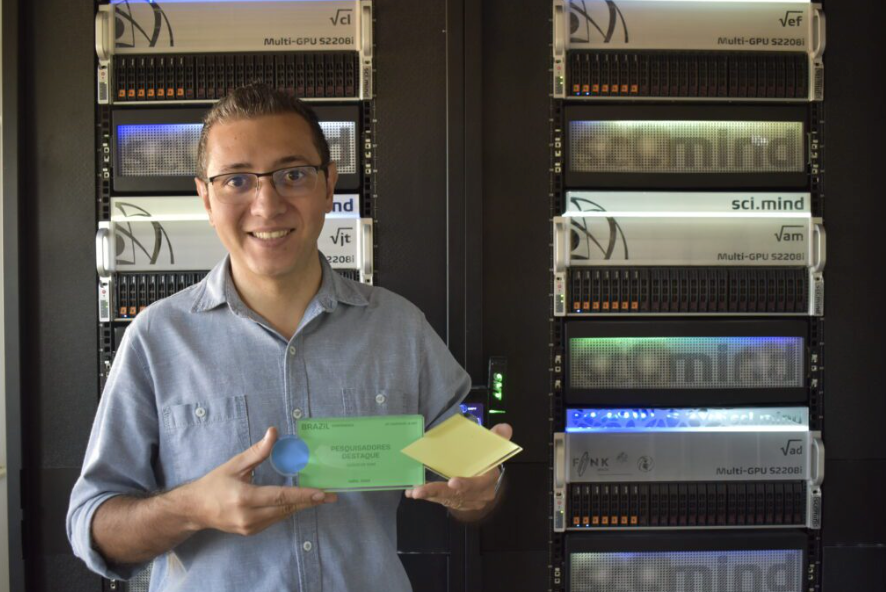
“AI makes it possible to do previously unthinkable science and analyses,” says CBPF professor
Coordinator of the CBPF’s Applied Artificial Intelligence Laboratory, Clécio Roque De Bom, received the Researcher Award at the 10th edition of the Brazil Conference in the United States. Credit: Divulgação.
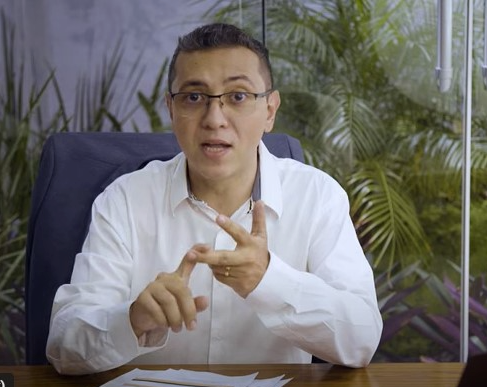
CBPF professor honored at Harvard and MIT
Astronomer and professor at the CBPF, Clécio Roque De Bom, received the Researcher Award at the 10th edition of the Brazil Conference, held April 6–7 at Harvard University and the Massachusetts Institute of Technology (MIT).
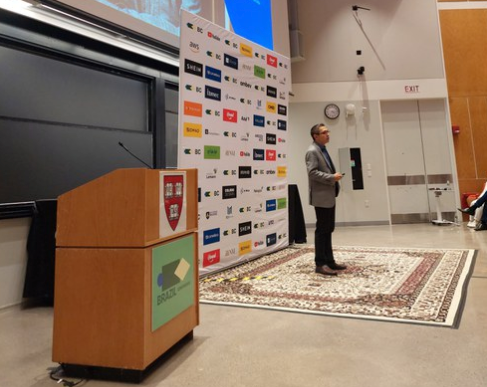
CBPF professor awarded at Harvard and MIT defending basic science and Artificial Intelligence as pillars of transformation
During the 10th edition of the Brazil Conference, held on April 6–7, 2024, at Harvard University and the Massachusetts Institute of Technology (MIT), CBPF professor Clécio Roque De Bom presented an initiative that caught the attention of academics.
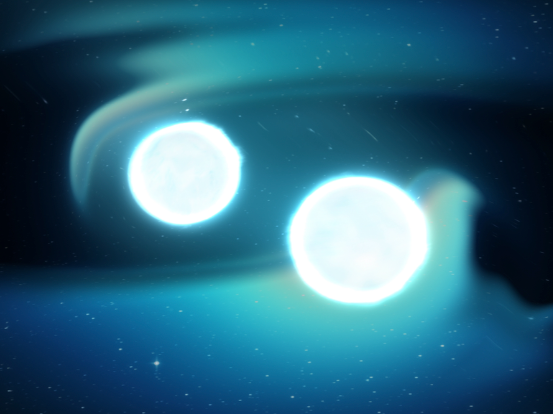
Brazilians take part in the discovery of a rare neutron star collision
A group of Brazilian researchers from the CBPF participated in the discovery of the most energetic fusion ever recorded. The event, called a kilonova, is a collision between neutron stars.
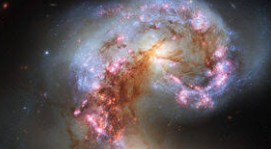
AI helps distinguish spiral from elliptical galaxies
Algorithms classify 160,000 clusters of billions of stars from images obtained by a Brazilian robotic telescope.
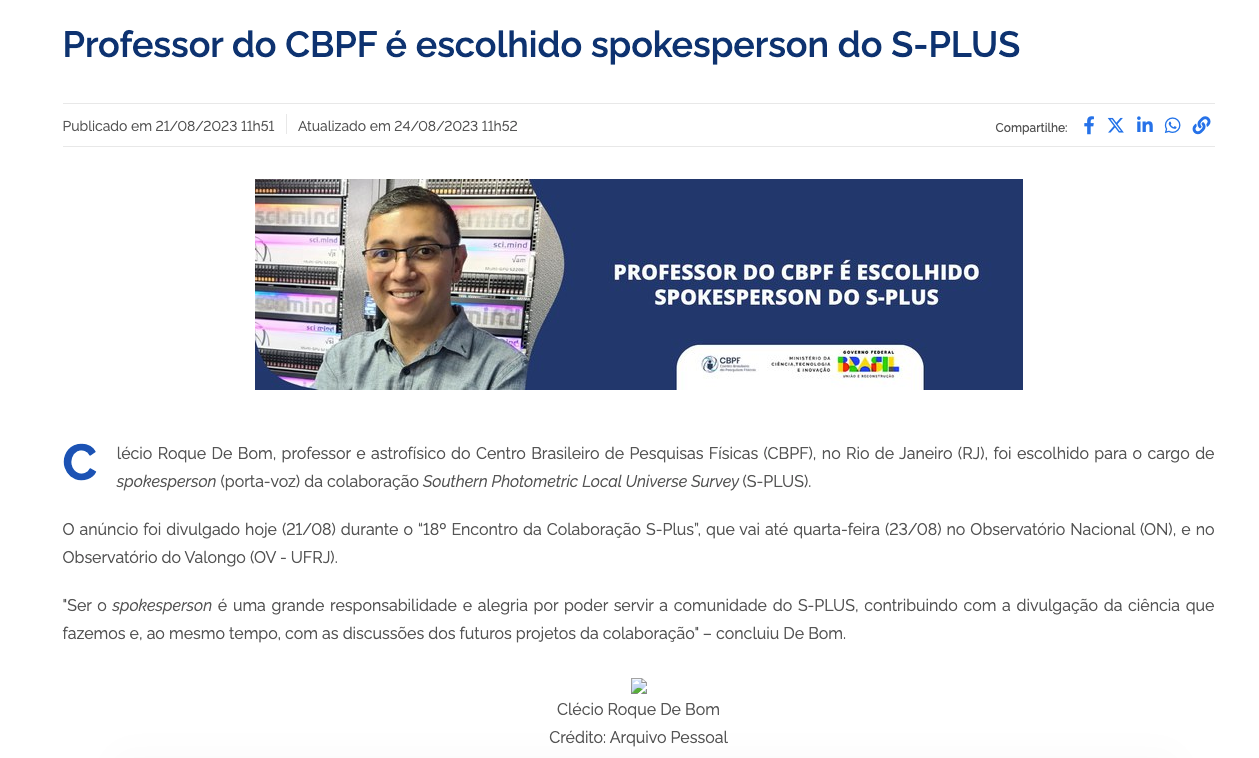
Prof. Clecio Bom appointed spokesperson of S-PLUS
Clécio Roque De Bom, professor and astrophysicist at the Brazilian Center for Physics Research (CBPF) in Rio de Janeiro, was appointed spokesperson for the Southern Photometric Local Universe Survey (S-PLUS).
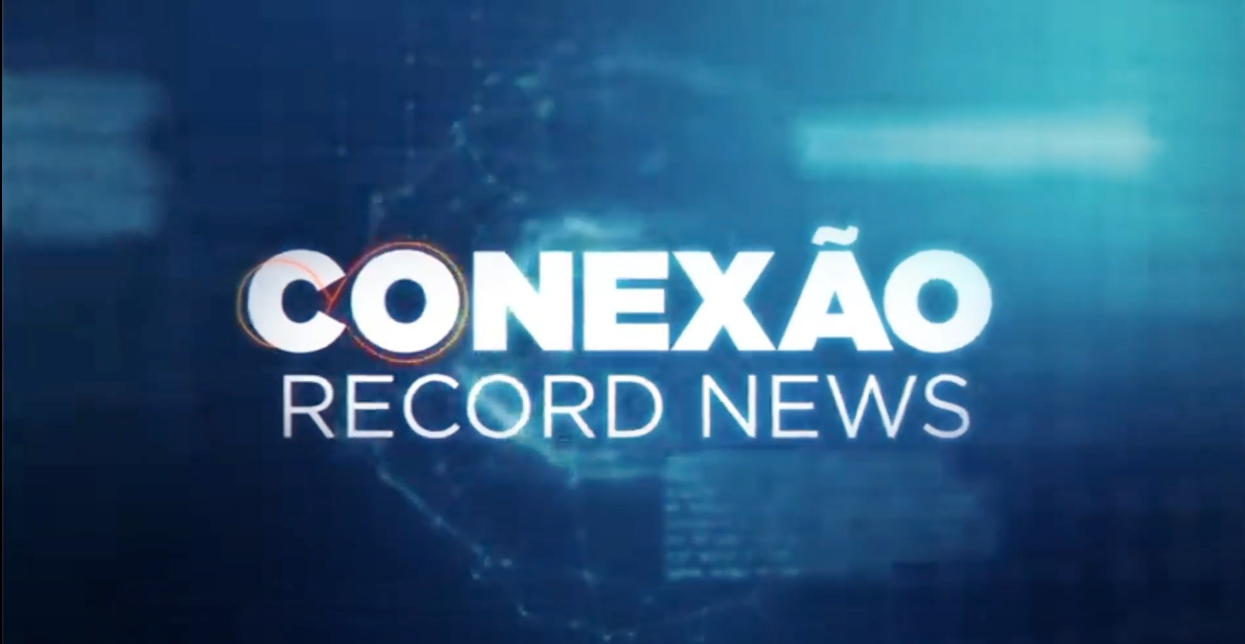
Live interview on AI applied to galaxy morphology on Band News
Clécio De Bom, professor at the CBPF, appeared on the Conexão Record News program on Monday (07/03) discussing artificial intelligence classifying galaxy images.
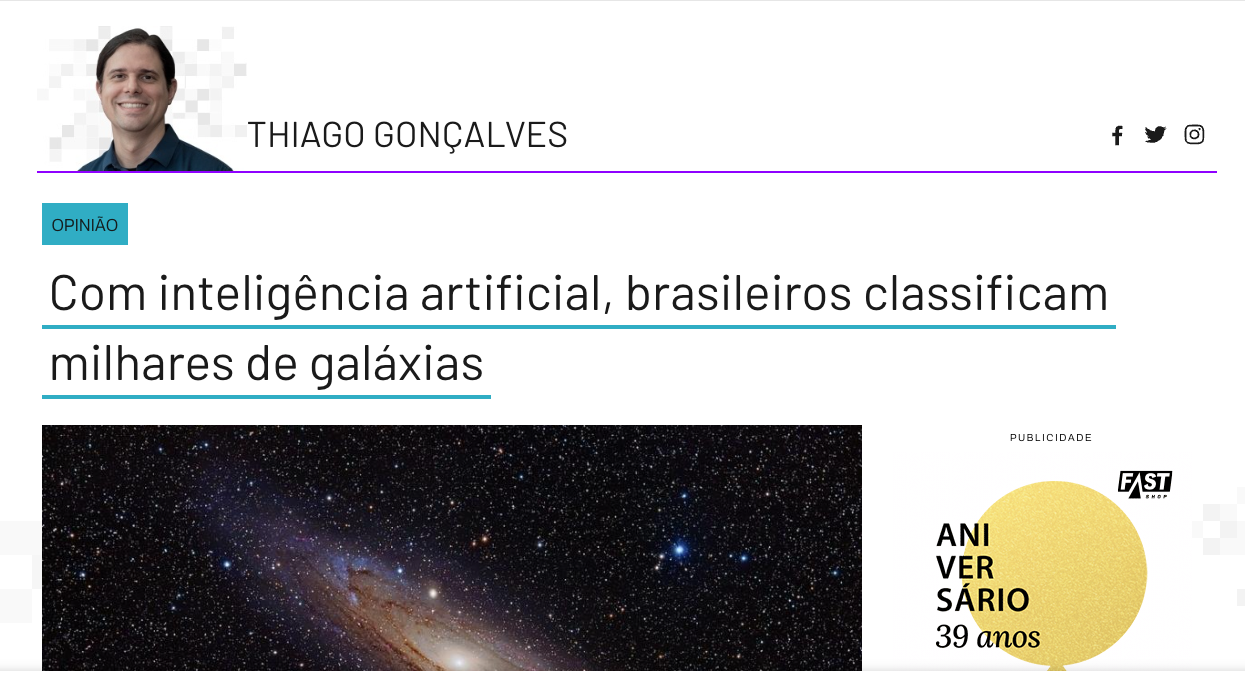
With AI, Brazilians classify thousands of galaxies
Published a scientific paper using artificial intelligence to classify galaxy images. If approved, the work will be published by the Royal Astronomical Society of the United Kingdom....
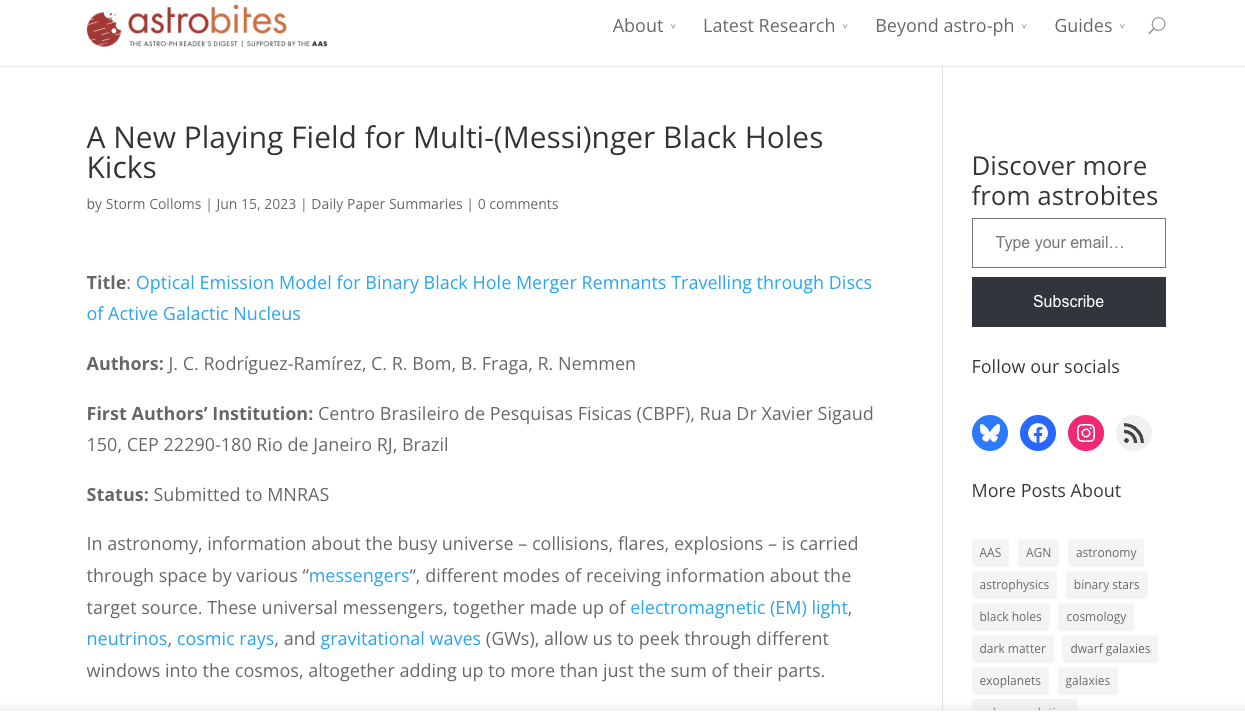
Astrobite describes the novel binary black hole model proposed by our group
In astronomy, information about the turbulent universe—collisions, eruptions, explosions—is carried through space by various messengers, different ways of receiving information about the source.
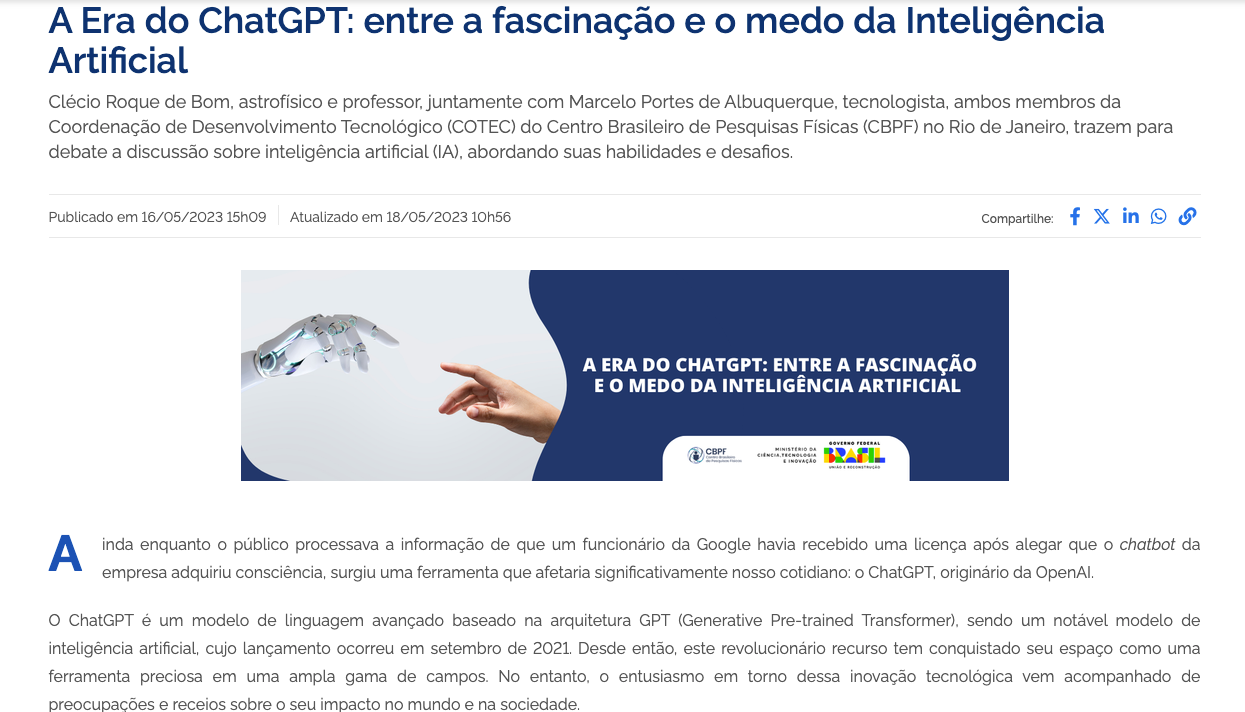
The ChatGPT era: between fascination and fear of Artificial Intelligence
While the public was still processing the news that a Google employee had been placed on leave after claiming the company's chatbot had become sentient, a new tool emerged that would significantly impact our daily lives: ChatGPT, from OpenAI.
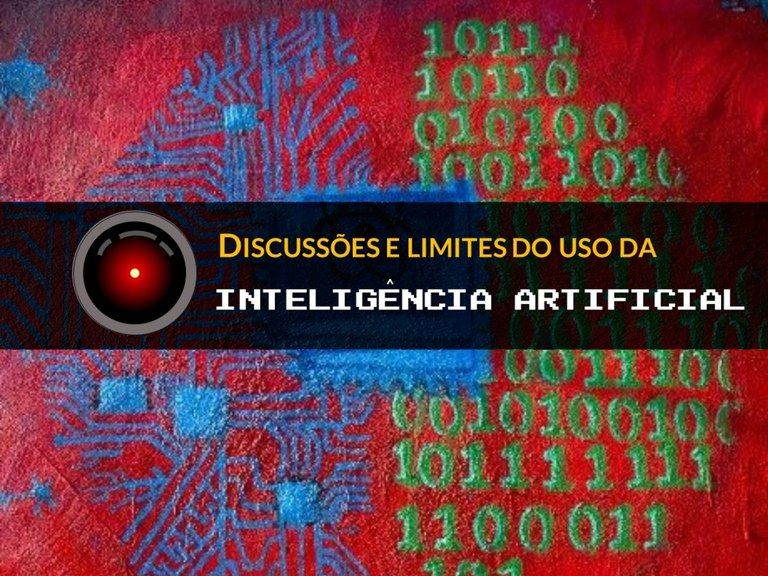
An Artificial Intelligence that is human, all too human
Popular imagination is full of images of Artificial Intelligence (AI) domination in a dystopian future, as revealed in the quote above, where the HAL computer refuses to assist astronaut David Bowman in a scene from *2001: A Space Odyssey*, a film by Stanley Kubrick and Arthur C. Clarke.
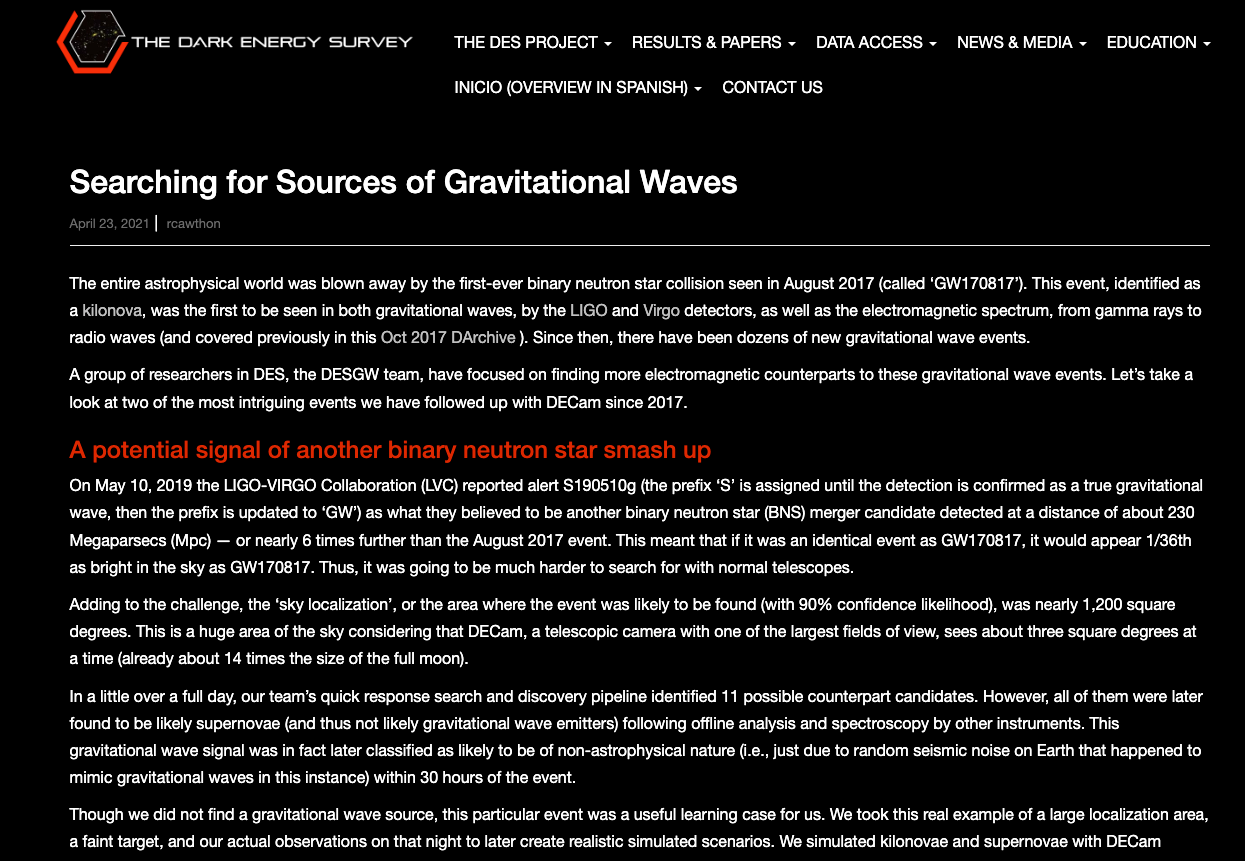
Article on the search for sources of Gravitational Waves
The entire astrophysics community was captivated by the first observed collision of binary neutron stars in August 2017 (called GW170817). This event, identified as a kilonova
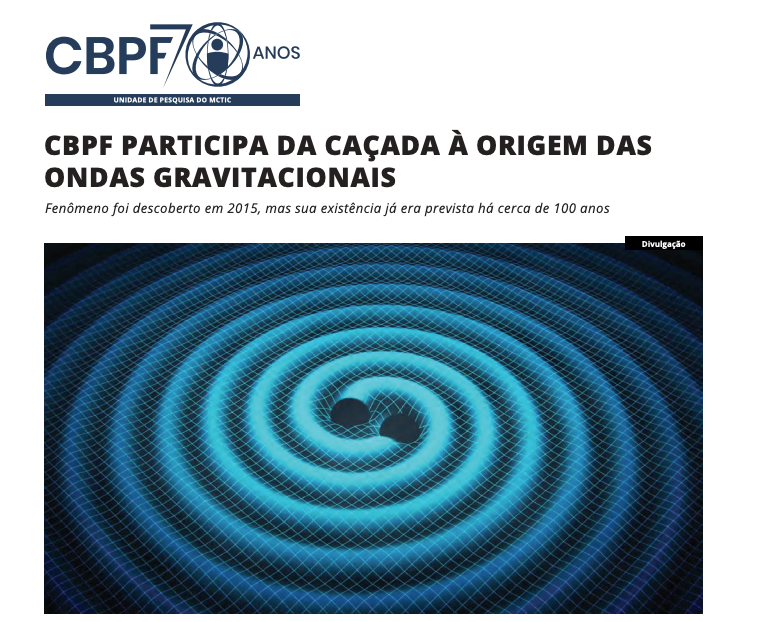
Article in Mundo MCTIC magazine on the search for optical sources
Researchers from the CBPF, together with colleagues from Brazil and around the world, are involved in the search for cosmic collisions that give rise to gravitational waves—a phenomenon discovered in 2015 and awarded the Nobel Prize in Physics in 2017.
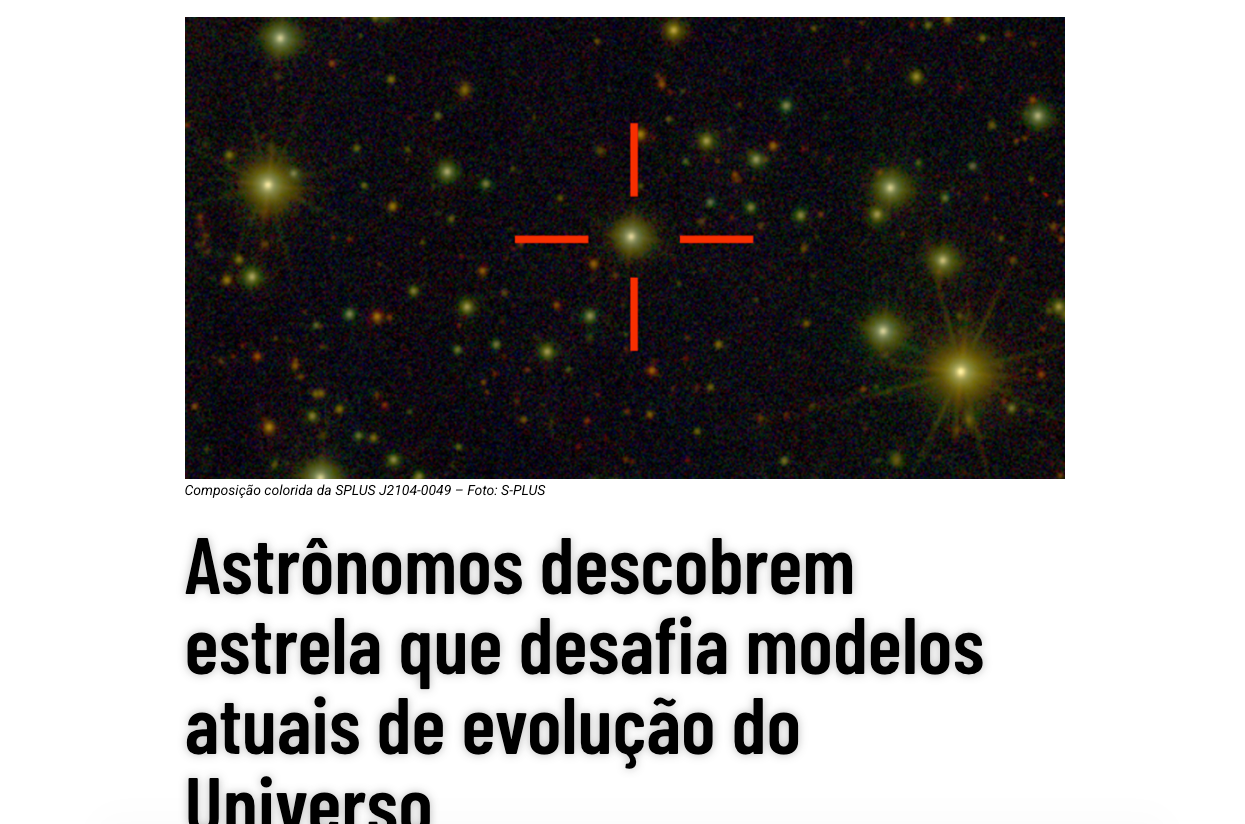
S-PLUS Survey: Astronomers discover star that challenges current models of the Universe
A study published this month in The Astrophysical Journal Letters (ApJL) reveals the discovery of a star belonging to the very rare group of ultra metal-poor stars.
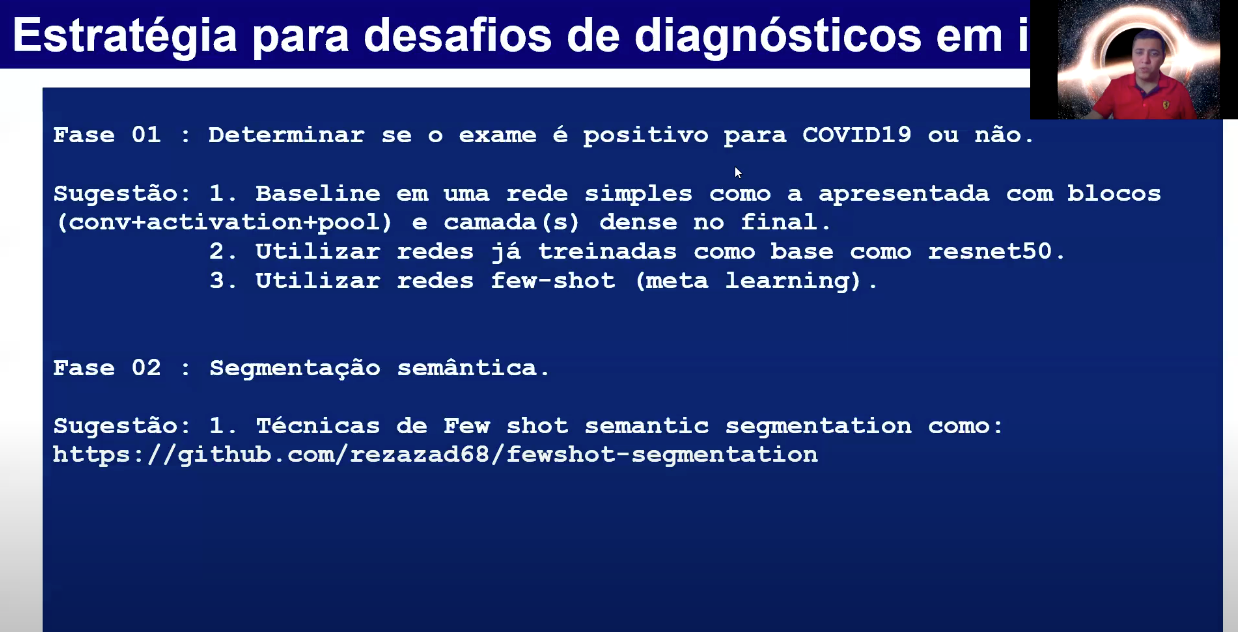
Seminar at Hackathon - HackCovid19
Clécio Roque de Bom, CBPF researcher and mentor of Hackcovid19, talks about deep learning applications for solving the competition's challenges.
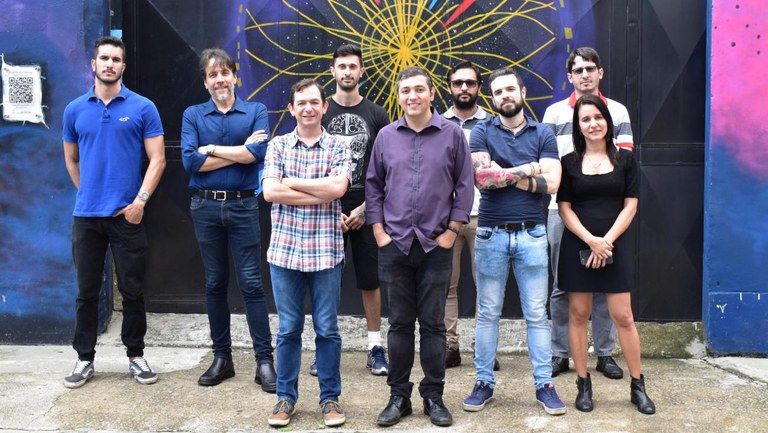
CBPF AI group wins international gravitational lens detection challenge using AI
Researchers and technologists from the Brazilian Center for Physics Research (CBPF) in Rio de Janeiro won an international challenge for identifying gravitational lensing systems in simulated images.
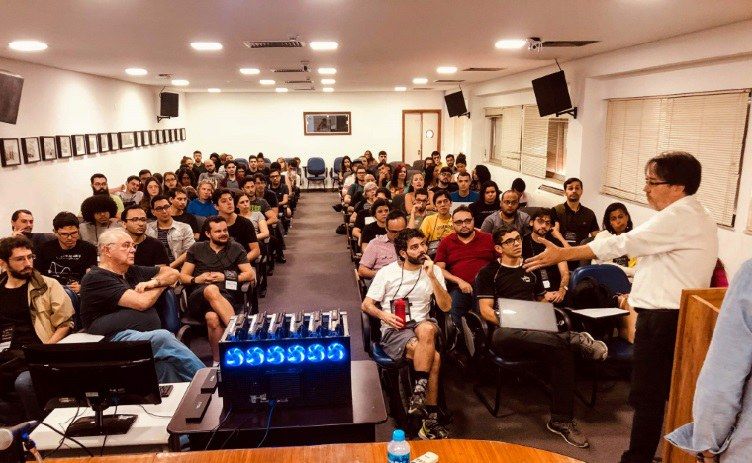
CBPF presents SCI-Mining, an AI cluster
Launched yesterday (August 1st) by the Image Processing and Artificial Intelligence group at the Brazilian Center for Physics Research (CBPF) in Rio de Janeiro, ‘SciMining’ is a supercomputer dedicated to the field of artificial intelligence.
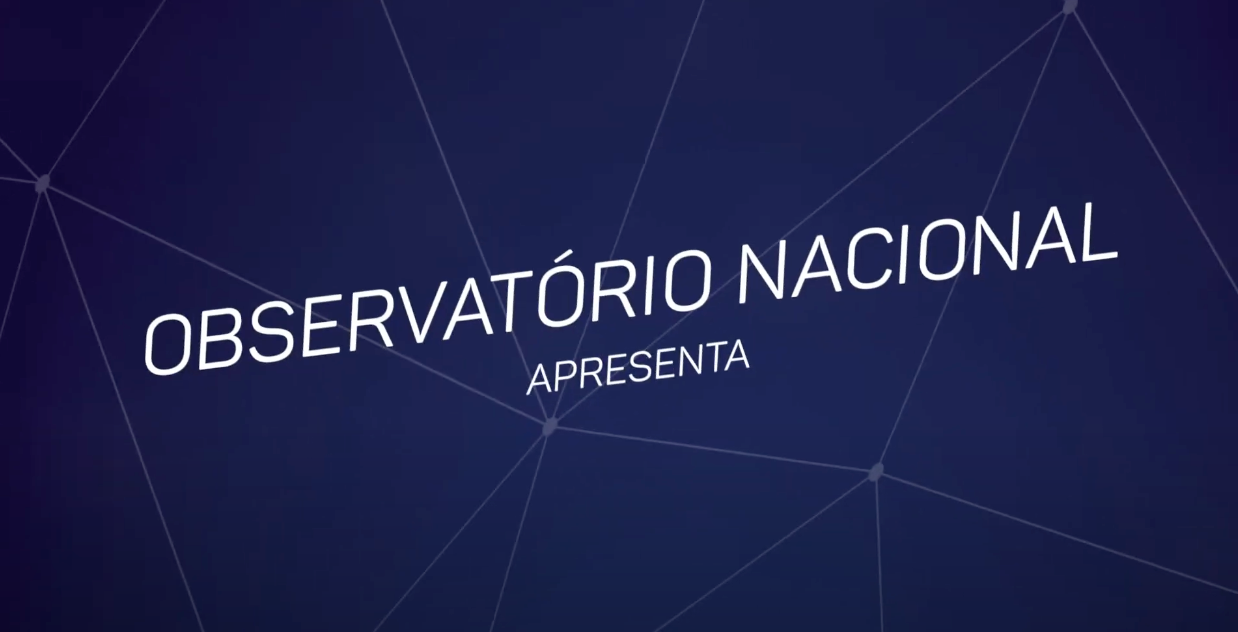
Seminar: Bayesian Deep Networks for parameter derivation (Portuguese)
Deep Learning algorithms have been proposed for various complex computer vision tasks. In many cases, they have matched or surpassed human performance.
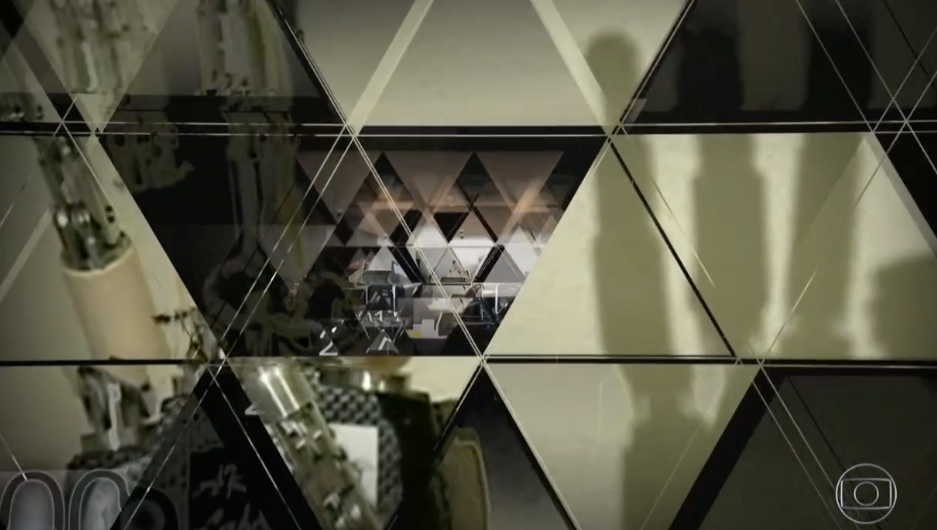
Report for Fantástico on Artificial Intelligence
A special series reveals the frontiers of artificial intelligence, one of the major challenges of modern science. In medicine, for example, it may even be used to diagnose cancer.
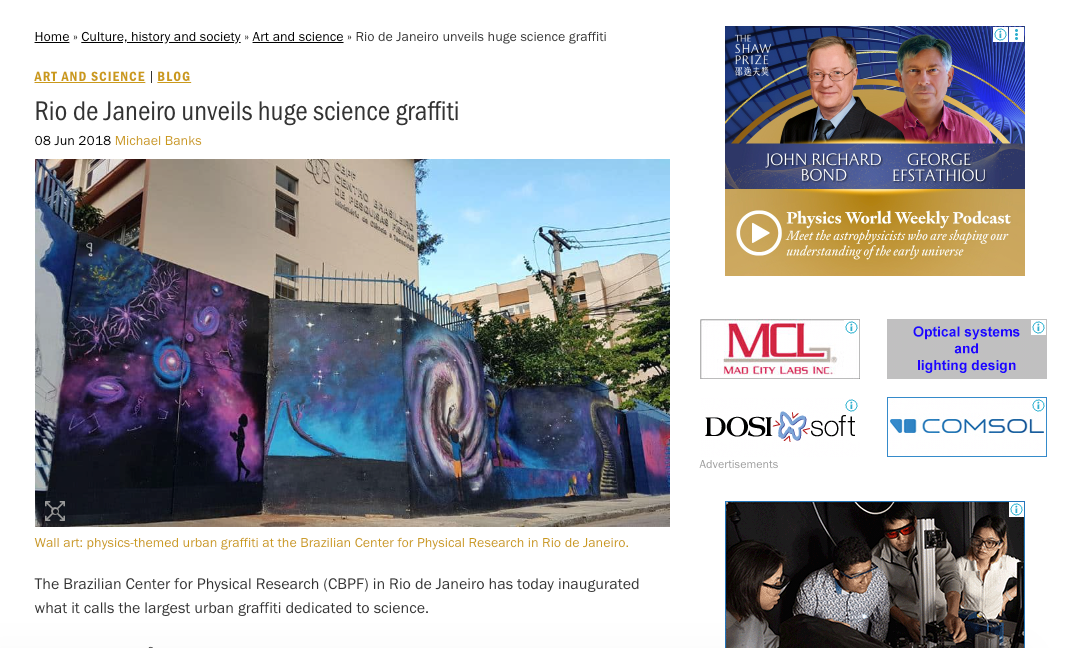
Physics World article about Science Grafiti
The CBPF in Rio de Janeiro inaugurated what it calls the largest urban science-themed mural today.
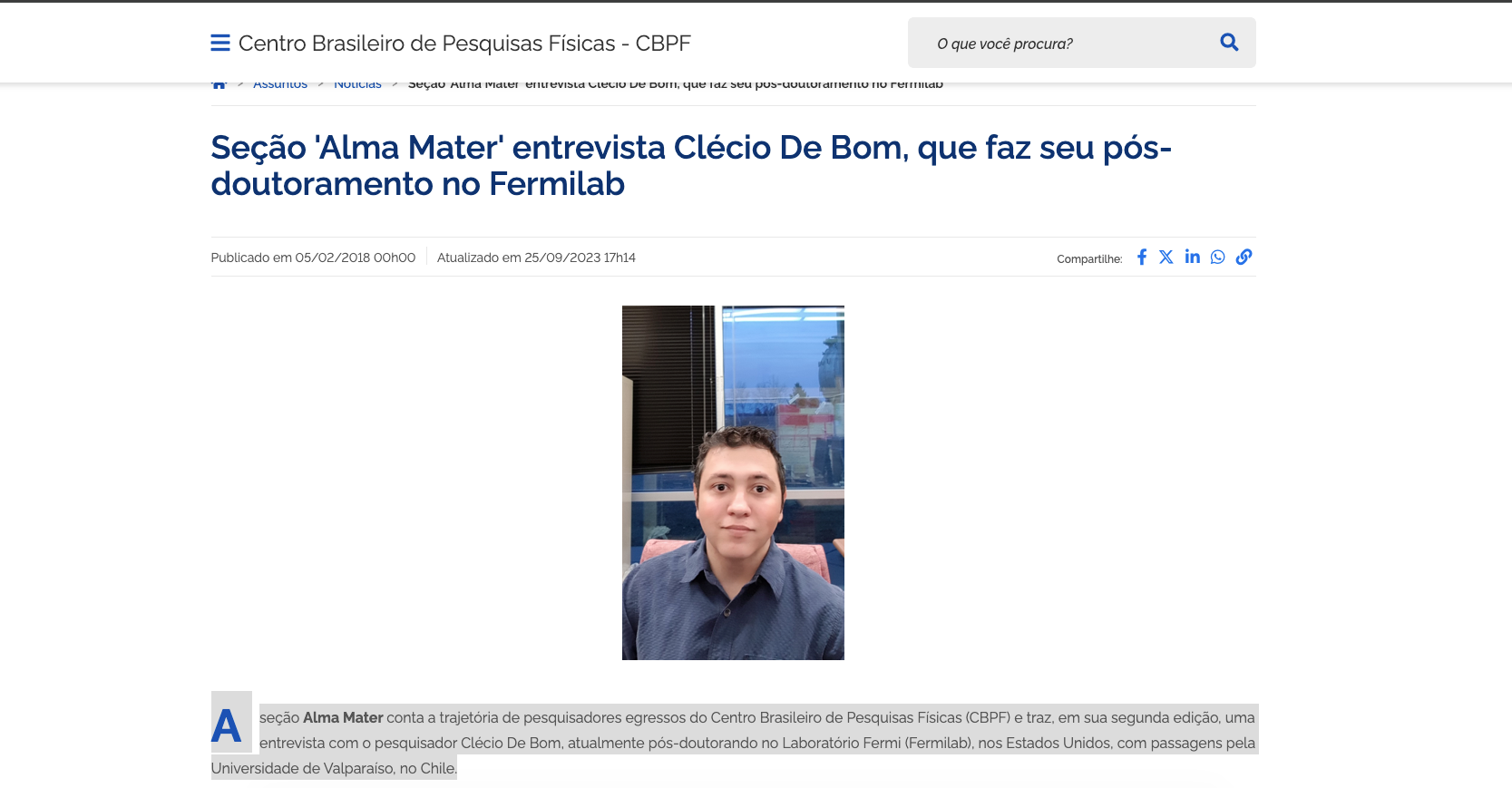
Interview about my work for Alma Mater section
The Alma Mater section features the journey of researchers who graduated from the Brazilian Center for Physics Research (CBPF) and, in its second edition, presents an interview with researcher Clécio De Bom, currently a postdoctoral fellow at Fermi National Accelerator Laboratory (Fermilab) in the United States, with experience at the University of Valparaíso in Chile.
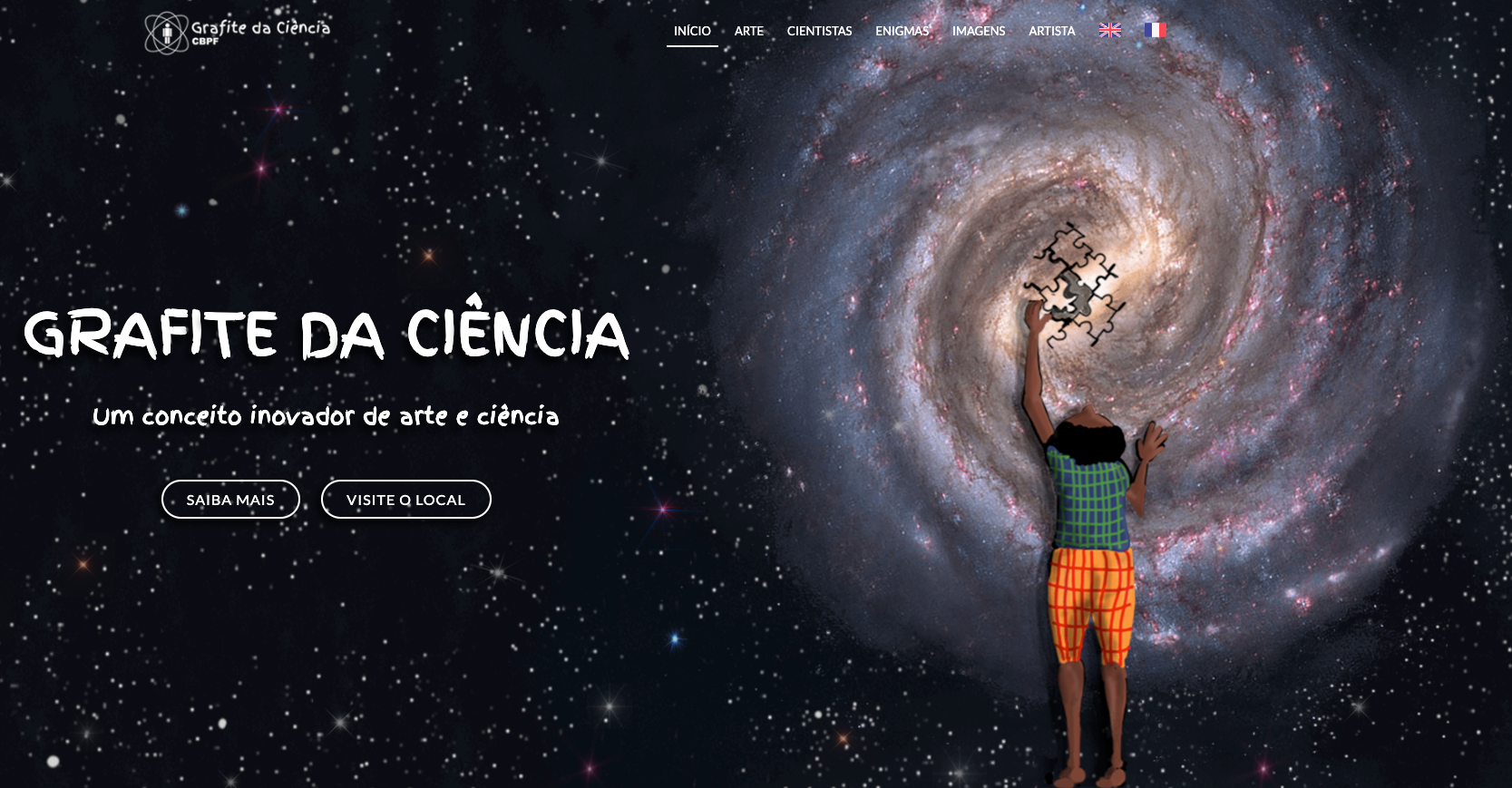
Science Grafiti (in English and Portuguese)
The Science Mural-Graffiti is a science communication project by the CBPF in Rio de Janeiro. By combining art, science, puzzles, and interactivity, the project informs, innovates, entertains, and contributes to revitalizing public spaces.
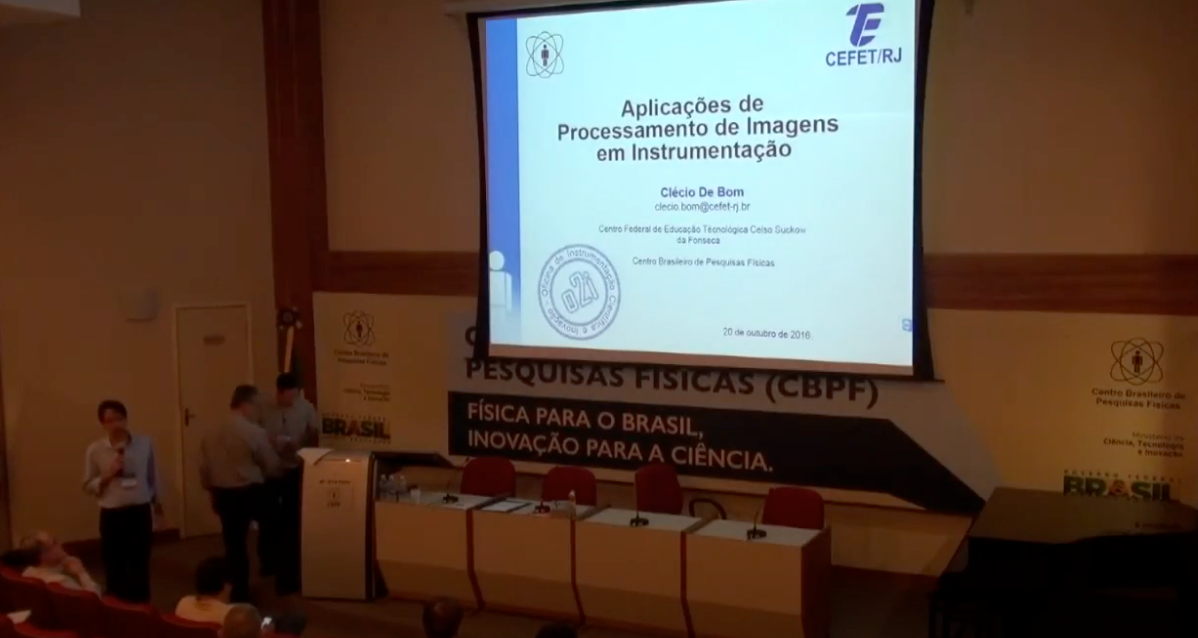
Image Processing Applications in Instrumentation (lecture)
3rd Workshop on Instrumentation and Technological Innovation (o2i 2016)
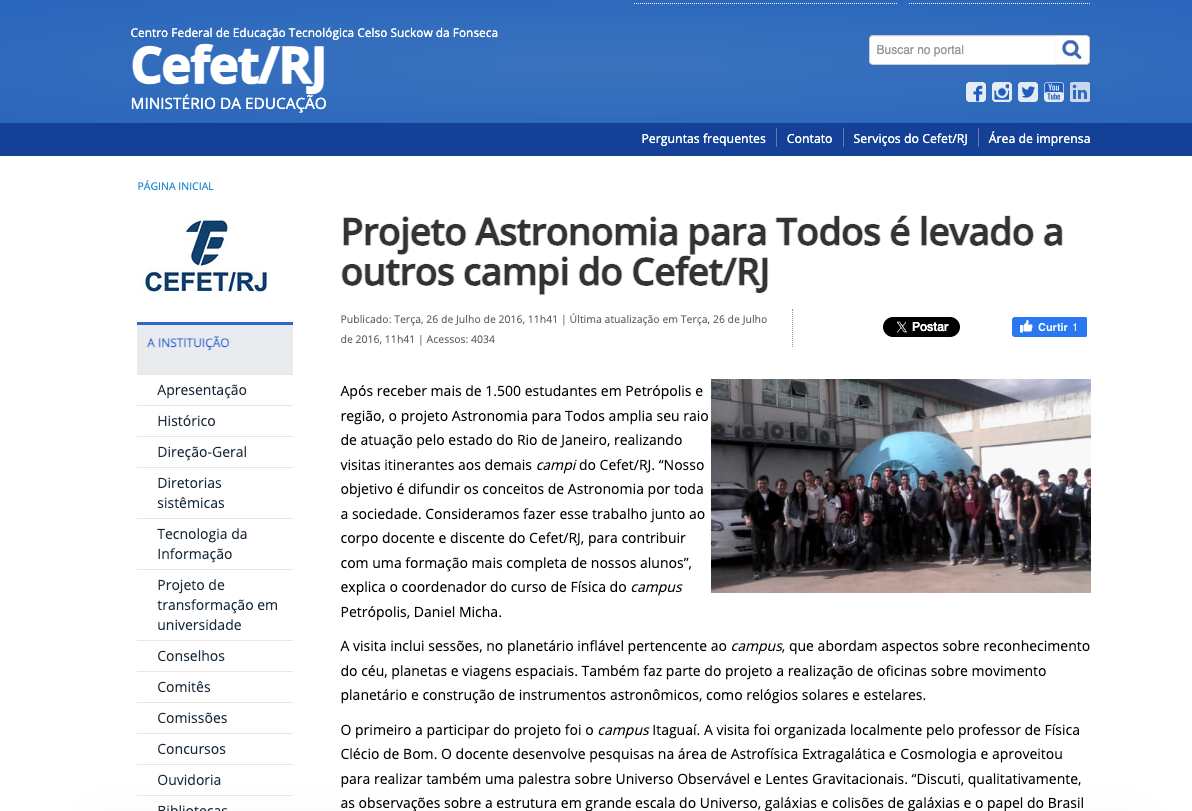
Astronomy for All project reaches other CEFET/RJ campuses
After reaching over 1,500 students in Petrópolis and the surrounding region, the Astronomy for All project expands its outreach throughout the state of Rio de Janeiro, conducting itinerant visits to other Cefet/RJ campuses.